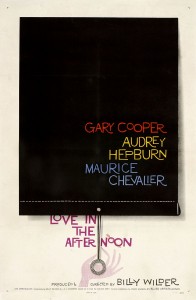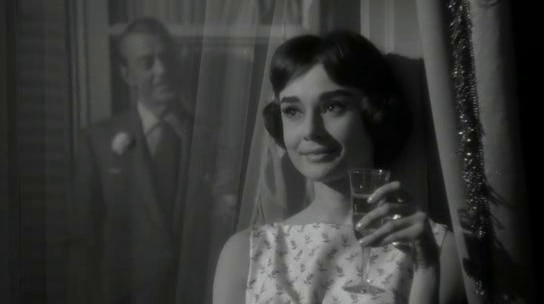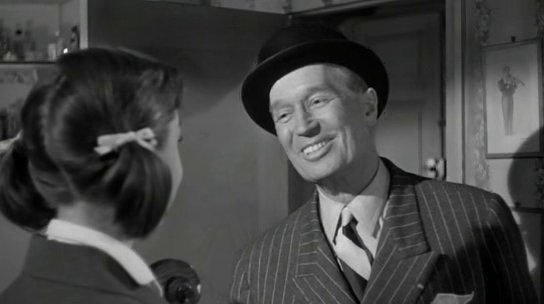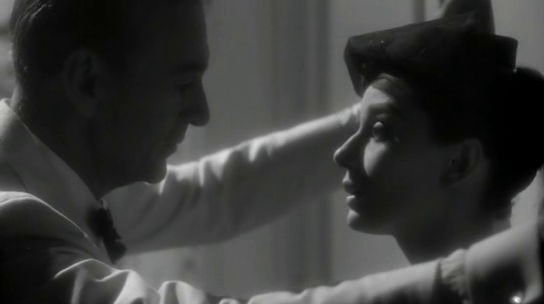Love in the Afternoon (1957)
“You know who I am, Mr. Flanagan — the girl in the afternoon, the apertif, as we say in the Left Bank.”
|
Synopsis: |
|
Genres, Themes, Actors, and Directors:
Review: Unfortunately, the film as a whole isn’t entirely successful. It’s too long by far, and its pacing is off, particularly during the first hour; things don’t really heat up until the second half of the story, when Hepburn suddenly begins “playing” Cooper, and we’re eager to see how she’ll manage to keep him enticed. It’s frustrating, however, that the mores of the time made it difficult for Wilder to definitively show one way or the other whether Hepburn and Cooper are actually lovers during the afternoon, or simply companions; it’s difficult to believe they would remain the latter, yet we’re simultaneously meant to suppose that Hepburn stays conveniently “innocent” throughout. Meanwhile, it’s frustrating to witness Hepburn’s persistent infatuation with Cooper, given what we understand about his inveterate playboy tendencies (witness the opera intermission scene, for instance, when Cooper’s eyes wander uncontrollably); we know that he’ll never be able to devotes his attentions solely to her, in the way she clearly hopes for and deserves. Redeeming Qualities and Moments: Must See? Links: |




One thought on “Love in the Afternoon (1957)”
A once-must, for its place in cinema history. I’m not even a particular fan of this film – but I suspect that Peary’s assertion that the film is of ‘historical importance’ may have something to do with its view of sexuality at the time (i.e., Hepburn’s character turning the tables on Cooper’s character; beating a man at a man’s game).
I don’t particularly feel the film has a pacing problem – nor do I think there’s a wait until the second half before things ‘heat up’. On the contrary, I think one of the stronger sequences comes early on – when Hepburn thwarts McGiver’s plan to kill Cooper. It’s a very entertaining sequence.
I do think there’s a little bit of unnecessary preciousness in the writing – but it’s nowhere near as bad as, say, most of what’s in Wilder’s woeful ‘Sabrina’ (also with Hepburn – and she’s actually better in this).
What’s a little unfortunate and disappointing about the opera intermission scene is that Cooper doesn’t recognize Hepburn when he sees her – but it’s probably less that he doesn’t recognize her than the fact that his character’s life in general exists in a land of emotional fog until he sees things closer up at a slower pace. I would disagree that ‘we know for a fact’ that Cooper will never love Hepburn’s Ariane. I think what the film wants us to believe is that Cooper genuinely falls in love with Hepburn – for keeps – because she was the only one smart enough to beat him at his game, while loving him at the same time.